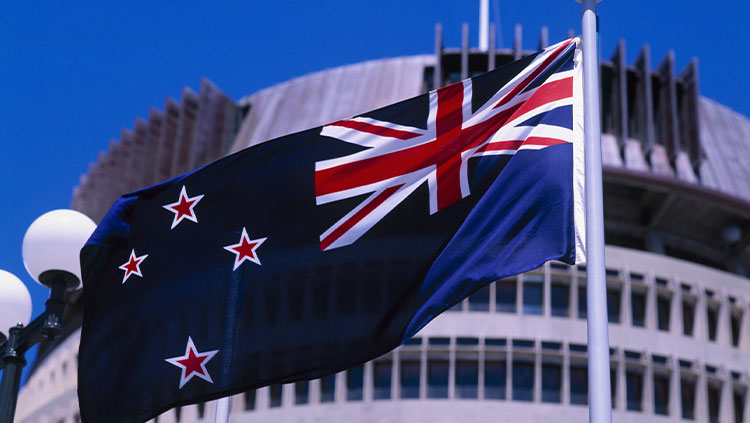Loading component...
Navigating government support for New Zealand SMEs
Content Summary
- COVID 19
- Practice management
Loading component...

This article was current at the time of publication.
The New Zealand government’s response to the COVID-19 crisis has been swift and determined, legislating a relief package of about NZ$18 billion, equivalent to about six per cent of the country’s GDP.
Accountants, working as finance specialists and business advisers, are providing critical support to their SME clients, guiding them through the crisis and accessing government support.
Saurav Wadhwa, Managing Director of Auckland-based IBBZ Accounting, believes that providing certainty is essential in a time of stress.
“I see that part of our job is to keep our clients from succumbing to panic,” he says.
“We have been taking their calls, providing updates and trying to give them as much comfort as possible.”
New businesses, and those that were already struggling, are more concerned than existing businesses.
“Established businesses are not too worried, but that will change if the situation goes on for another six months or so.
“As for our own business, we are expecting a 30 per cent to 40 per cent reduction in sales, and there has been a marked drop-off in new clients. All our employees are working remotely, and everyone’s hours have been reduced to 32 hours as a way of sharing the burden.
“We had previously invested in the technology to allow remote working and had simplified our processes, and that is now showing the benefits.”
Going above and beyond to give back to clients
Wadhwa says his firm is not charging any professional fees to help clients access government support and clients have been given extensions of payment terms for other services whenever they have asked.
Bridgette Pretty, director of the Nelson-based practice Pretty Accounting, also acknowledges the crucial aspect of providing reliable information to clients.
“During the first two weeks after the relief package was announced, I worked long hours to help clients with information around the subsidy applications,” Pretty says.
“I turned billing off during this time as having access to answers during challenging times can greatly help to reduce stress levels.
“It’s a way of giving back to clients, and clients have shown remarkable resilience, even those who have been hit very hard.
“It’s important to be here for them, to offer answers and steadiness in a time of stress. That has extended from providing guidance on cash flow planning for the future to developing some coping skills on how not to kill family members during lockdown!”
New Zealand government support package assistance
Pretty says the wage subsidy is a valuable part of the government support package, allowing businesses to retain valued staff.
Assistance has also been important for the self-employed, as it has meant they can plan cash flow with the assurance that some money, at least, will be coming in. This part of the support package is fairly easy to access, but Pretty’s firm has been there to assist clients with applications and documentation.
Wadhwa agrees the wage subsidy scheme is one of the most effective government initiatives, and his practice has helped many clients with it.
Other more complex aspects of the government support program - such as re-introducing depreciation for non-residential buildings, changes to some tax rules and the temporary increase in asset write-offs - will usually require professional advice.
Wadhwa is less enthusiastic about the loan scheme. He says some companies will take the loan, but then not have the capacity to repay it.
However, he says the overall package is very positive in the level of support it has provided.
Recovery opportunities for the accounting profession
Pretty and Wadhwa agree that the accounting profession will have an important role to play when the economy moves into recovery phase.
“Cash flow planning is going to be a big one, as well as tax planning, which was invaluable in the recovery from the previous recession,” Pretty says.
“We will also provide assistance with information to give to clients’ banks. That will be important as we come out of lockdown – a means of keeping relationships between clients and the banking sector open.”
She believes that the recovery period will open up opportunities for many businesses, and is working to ensure her clients will be in a position to take advantage.
Wadhwa agrees, saying: “Using our expertise to look ahead is one good way we can add value to our clients. We make it part of our regular update service, and we are also providing advice on financial planning and business restructuring.
“Looking ahead a bit further, we will help our clients with disaster recovery plans, which include contingency funds in the form of liquid cash. For some time, I have been working with clients to build contingency funds – nine months of total gross expenses is a good target, in my view, and three months is the absolute minimum. This crisis underlines the value of that.
“As accountants and CPAs, we are our clients’ most trusted source of advice. I believe they need us more than ever before, and we cannot let them down.”
COVID-19 information and support
Resources, guides, advice and updates designed to support you and your clients during the pandemic.
Loading component...
Discover more
Accountants' insurance premiums on the rise
As economic downturn creates a rise in PI claims, practitioners need mitigation plans. Here are a few.
- Practice management
- COVID 19
article·Published onSounds of silence: Australia's live entertainment sector struggles
There are growing calls for more help to rescue what was once a thriving industry
- COVID 19
article·Published onCOVID-19 prompts rapid conclusion to Australia’s audit inquiry
Published in The Accountant UK (December 2020)
- COVID 19
Lock out and lockdown: your guide to the 2021-22 Tasmanian budget
Media Release | 26 August 2021
- COVID 19
The COVID new world
Published in SMS Magazine (May 2020)
- COVID 19

COVID-19 support
Resources, guides and information to support you and your clients
- COVID 19

